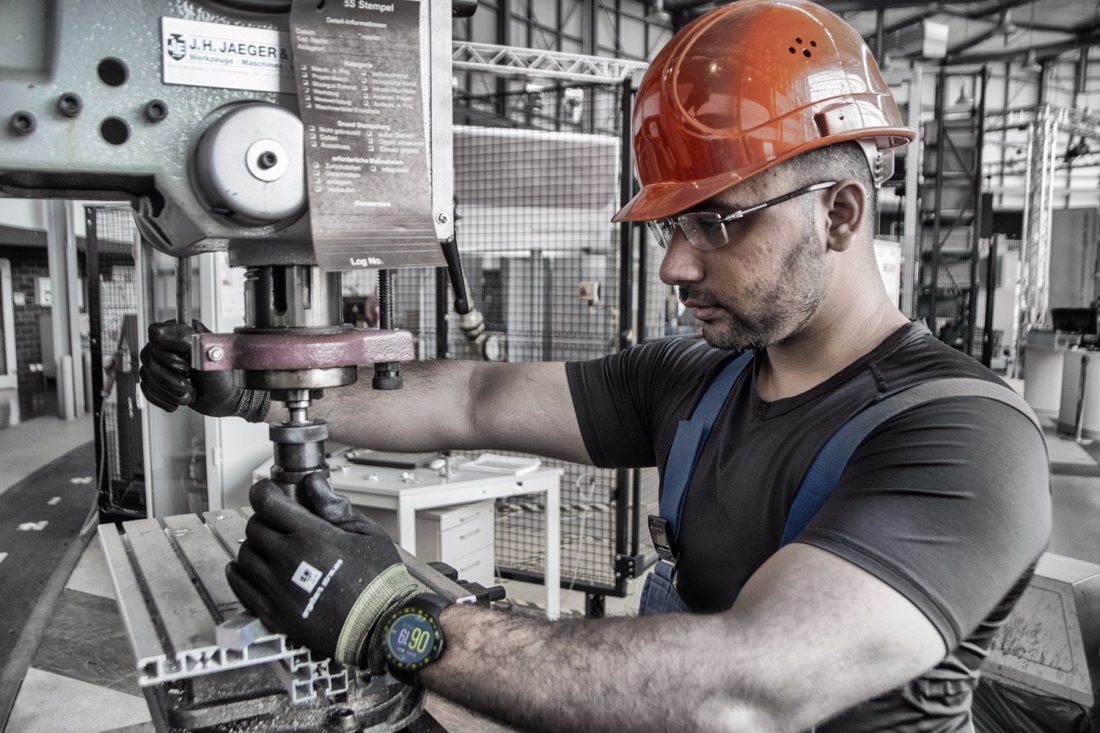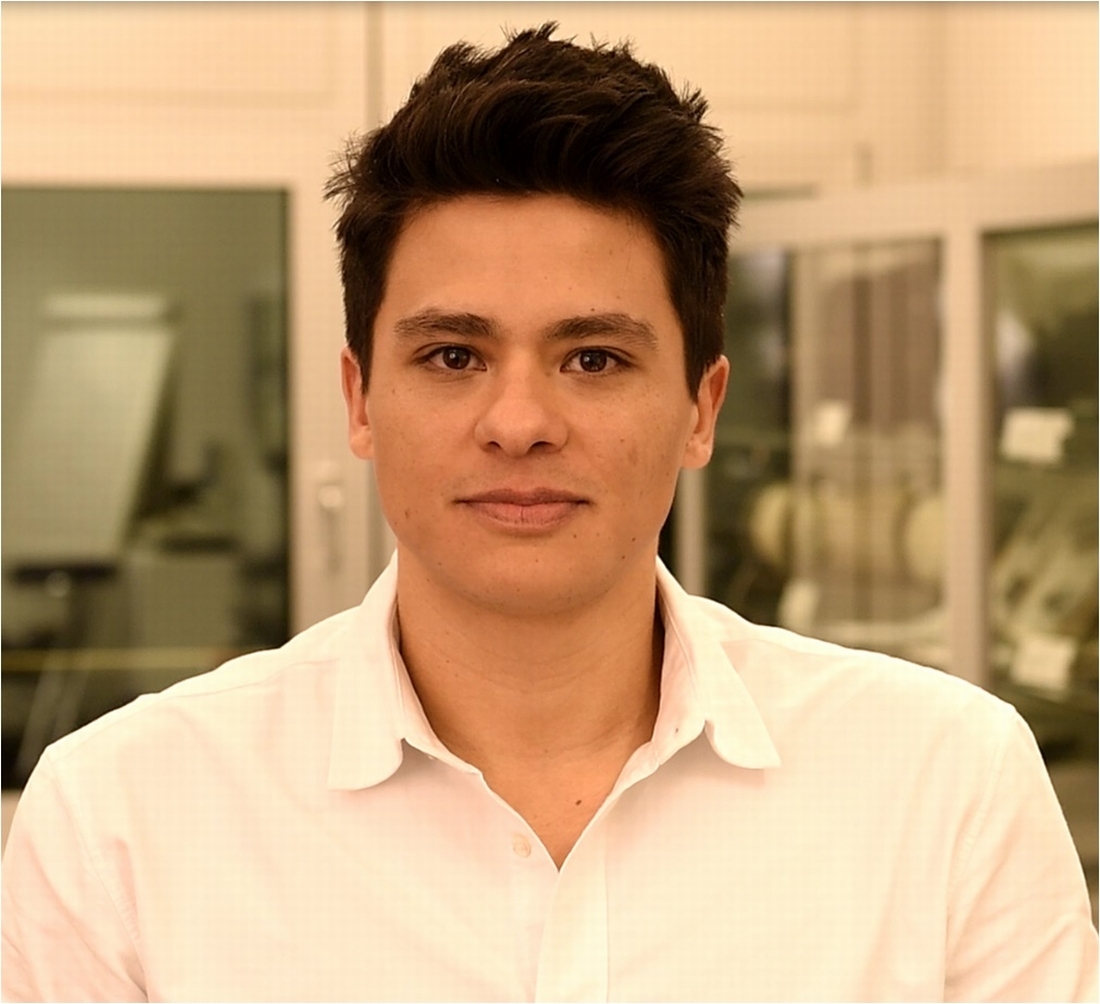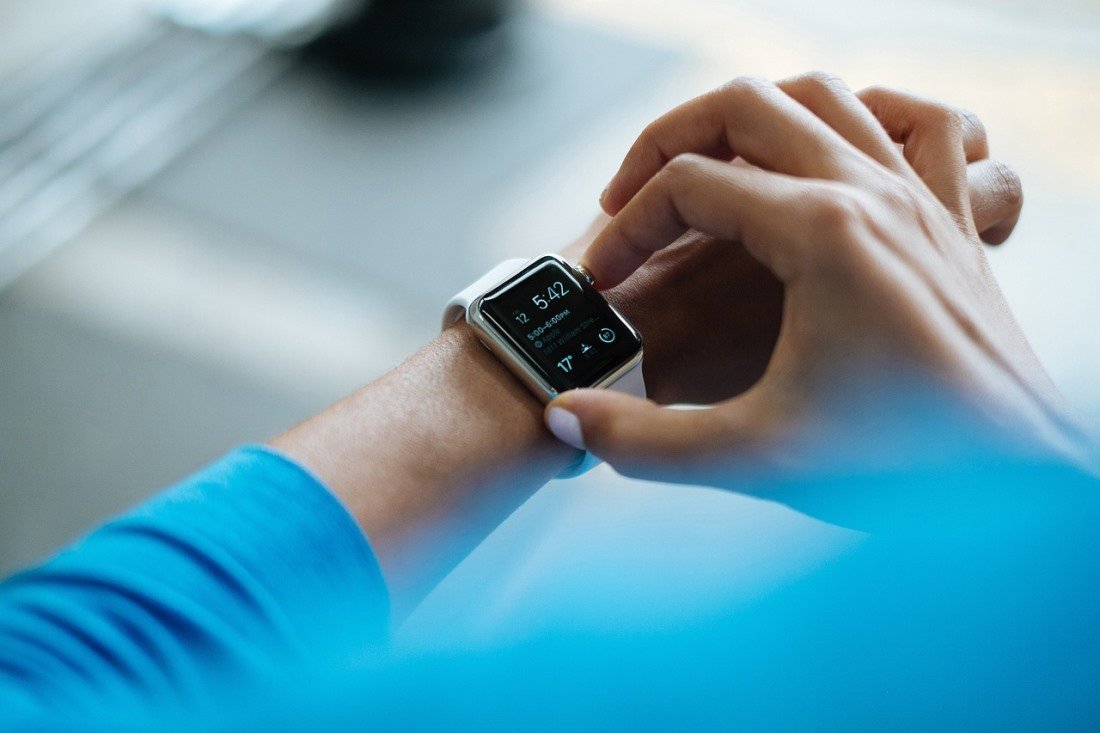The man with an eye for AI
StartupsWearHealth is developing an AI-based platform for occupational health and safety

Esteban Bayro-Kaiser has big plans for his start-up, WearHealth. He firmly believes that Bremen can become a leading hub for artificial intelligence technology. But what made this globetrotter choose Bremen?
Bayro-Kaiser says that he has grown up all over the world. The 35-year-old, who has a Bolivian father and a German mother, studied electrical engineering and communications technology in Chile before returning to Germany. His cosmopolitan outlook is reflected in his ambitions and he is already well on his way to achieving his aim of establishing an international company in Bremen.
This likeable young man is extremely determined. His particular area of interest is artificial intelligence (AI), and that is what drew him to Bremen in 2010 for his doctorate. “There are three AI institutes based here and the university has an excellent technology infrastructure. Those were key factors in my decision,” he says.
In addition to his enthusiasm for AI, he always knew that he wanted to become an entrepreneur. “Artificial intelligence is experiencing a boom and has great potential – it was clear to me early on that I wanted to set up my own business,” he adds.
WearHealth develops AI systems for Worker 4.0
Two and a half years ago, he fulfilled his dream and set up WearHealth with his business partners. The company is located in the BITZ technology centre in Bremen Technology Park, near to the University of Bremen and the AI institutes. So far, their dream of running an international business is on course. In addition to the office in Bremen, they have a site in France and one in Spain.
The company’s staff of 15 is a colourful mix of people from a wide range of countries, reflecting Bayro-Kaiser’s cosmopolitan nature. He wants diversity in his team, and having expertise in AI is just one of the hiring criteria. “I firmly believe that a diverse international team is better and more creative,” he says.

Wearables are clothes and accessories that are intelligent thanks to built-in sensors and circuits, and include smartwatches and glasses with built-in displays, such as Google Glass. They are becoming increasingly widespread throughout industry. WearHealth is developing a platform that collects data from wearables in companies and uses artificial intelligence to analyse it.
Maintaining good health and avoiding accidents
Bayro-Kaiser uses an example to demonstrate how his idea works: “Smartwatches can recognise sudden movements. Our system collects this data and can identify whether a worker has fallen over, for example. A member of the occupational health and safety department is notified, who can contact the employee directly via the watch and, if necessary, send out a paramedic team.”
WearHealth develops applications for industry, and the aim of the AI platform is to reduce accidents at work, promote employee health and increase productivity. In addition to smartwatches, the Bremen-based company uses intelligent t-shirts that, when worn under clothing, can detect the workers’ stress levels. 3D cameras are also used to monitor workers’ movements so that they can be warned if they are straining their joints and muscles too much or in the wrong way. “Preventative healthcare is growing in importance. With all the hype surrounding digitalization, we shouldn’t lose sight of the person,” says Bayro-Kaiser. “We bring the two together.”
Is this the advent of the transparent worker?
Will workers become completely transparent? Will their work be assessed in detail by computers, every second of the working day? Bayro-Kaiser nods earnestly – data protection and privacy are important topics at WearHealth. “Nobody can access the personal data. Analyses are always performed anonymously based on larger teams that do not allow individualisation,” he says.
Tests have shown that the new systems are well received by workers. For the first time, it is possible to collect information on occupational safety and healthcare in real time. Everyone benefits, as the system allows for a faster response to flaws and faults.
Seeing failure as part of the learning process
In conversation with Bayro-Kaiser, you get the impression that you are talking to a CEO who has been successful for many years. This self-confidence is the result of a lot of hard work, as WearHealth has suffered its share of setbacks. Insurance companies were the company’s first target group, says Bayro-Kaiser. This proved to be unsuccessful, however, and they had to rethink their business model.

He is now working directly with the industrial sector to improve the systems. “It is important for a business start-up like ours to work directly with customers. They know the problem, and we provide the solution.” The customer base now includes automotive manufacturers and energy companies.
Under constant review
He encourages his team to constantly question what they are doing. “If I look back over the last two months and see that I haven’t failed in a single task, then I know that something is wrong,” he says with a chuckle. There is a lot to learn as a young start-up. Failure is important, because mistakes make everyone better. Not taking anything for granted and questioning everything is the rule he lives by.
In order to turn every failure into a success, he sought mentors right from the start. Bayro-Kaiser has also had extensive start-up training: he has completed Bremen’s Starthaus coaching programme, attended various accelerators and applied for funding from the EXIST programme and other EU programmes.
No reason to go anywhere else
“Why should we go to Berlin?” is his answer to a question about Bremen as a technology hub. “Berlin already has too many start-ups. Bremen has plenty of young talent, and we have excellent strategic partners in the business and research communities here. There is no reason to go anywhere else.”
The young entrepreneur still has a lot of plans. He hopes WearHealth will become one of the leading companies in the field of AI and occupational health and safety. “We are establishing a platform that can analyse data from a wide range of wearables vendors – nobody else is doing that,” he says. WearHealth is focusing entirely on the platform economy and the provision of applications that combine a variety of services and providers. He believes that is where the growth potential lies.
If you have any questions regarding your company, please send an e-mail to info@starthaus-bremen.de or call us at +49 (0)421 9600 372. We have the answers.
Success Stories
Medium-Sized Companies in Bremen Showcasing the Full Range of the Local Economy
Medium-sized companies form the backbone of Bremen’s economy. They create jobs and produce goods that are in demand worldwide. Here is a selection of ten businesses that illustrate the diversity of Bremen’s economic landscape.
Learn moreMeasure, Test, Inspect – 11 Examples of Precision Engineering from Bremen
Not many people could name a manufacturer of metrology and testing equipment, but without their products we would not have space probes, aircraft or medical equipment. And Bremen is home to a whole host of these specialist companies.
Learn more8 Bremen Companies involved in Mass Spectrometry
If you want to get down to the smallest building blocks of our world, you need mass spectrometers. And there are few places in the world where there is such a high concentration of specialists and manufacturing companies and suppliers in this sector as in Bremen.
Learn more
